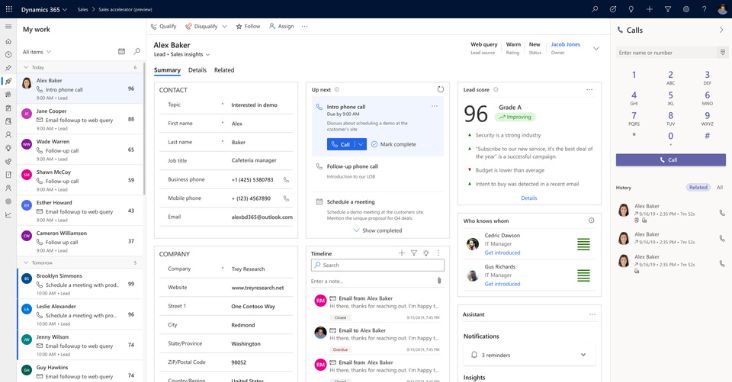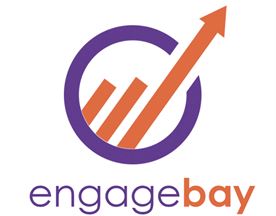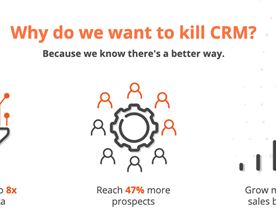In today’s fast-paced business landscape, building and maintaining strong customer relationships is paramount to success. Customer Relationship Management software (CRM) systems have emerged as a crucial tool for businesses to effectively manage and nurture these relationships. With the advent of cloud technology, CRM has undergone a significant transformation, giving rise to Cloud CRM—an innovative approach that revolutionizes the way organizations interact with their customers.
Understanding Cloud CRM
Cloud CRM cloud software or, also known as CRM in the cloud or SaaS CRM (Software-as-a-Service CRM), refers to CRM systems that are hosted and accessed through cloud-based platforms.
Unlike traditional on-premises CRM solutions, Cloud CRM leverages the power of the cloud to provide businesses with a host of advantages, such as accessibility, scalability, and cost-effectiveness.

Key features and benefits of Cloud CRM
Accessibility and flexibility: Cloud CRM allows users to access the system and customer data from anywhere with an internet connection, enabling remote work and facilitating collaboration among team members.
Cost-effectiveness: Cloud CRM eliminates the need for expensive hardware infrastructure and reduces upfront costs, as businesses can subscribe to a cloud-based CRM service on a pay-as-you-go basis.
Scalability and customization: Cloud CRM offers scalability to accommodate business growth or seasonal fluctuations. Additionally, it provides customization options to tailor the CRM system to specific organizational needs.
Data security and backup: Cloud CRM providers implement robust security measures and regular data backups to protect customer information from loss or unauthorized access.
Integration capabilities: Cloud CRM seamlessly integrates with other cloud-based applications, such as marketing automation tools, email platforms, and customer support systems, streamlining data flow and improving operational efficiency.
Cloud CRM’s unique set of features and benefits makes it an attractive choice for small businesses, of all sizes and industries seeking to optimize their customer relationship management processes.

Advantages of Cloud CRM
Cloud CRM offers numerous advantages that revolutionize how businesses manage their customer relationships. By leveraging the power of the cloud, organizations can unlock new opportunities for collaboration, data management, and personalized customer experiences. Let’s delve into the key advantages of Cloud CRM:
1. Enhanced collaboration and communication
Cloud CRM fosters seamless collaboration among teams, regardless of their physical location. With real-time access to customer data, sales teams, customer service representatives, and marketing professionals can work together more efficiently. They can share information, track customer interactions, and collaborate on strategies to deliver exceptional customer experiences.
2. Improved customer data management
Effective customer data management lies at the core of successful CRM initiatives. Cloud CRM empowers businesses to centralize customer information, including contact details, purchase history, preferences, and interactions. This consolidated view enables sales and marketing teams to gain deep insights into customer behavior, identify patterns, and make data-driven decisions to enhance engagement and sales strategies.
3. Streamlined sales and marketing processes
Cloud CRM streamlines sales and marketing operations by automating repetitive tasks and providing intelligent workflows. From lead generation and nurturing to opportunity management and sales pipeline forecasting, Cloud CRM helps organizations streamline their processes, reduce manual effort, and accelerate sales cycles. Marketing teams can leverage integrated tools for email marketing, campaign management, and customer segmentation to deliver targeted and personalized messaging, resulting in higher conversion rates.
4. Personalized customer experiences
Cloud CRM enables businesses to deliver personalized experiences at scale. By leveraging customer data and segmentation capabilities, organizations can create targeted marketing campaigns, tailored offers, and personalized interactions across various touchpoints. This personalized approach fosters stronger customer relationships, increases customer loyalty, and drives repeat business.
5. Real-time analytics and reporting
Cloud CRM provides businesses with real-time analytics and reporting capabilities to monitor key performance indicators (KPIs) and track the effectiveness of their CRM strategies. With customizable dashboards and comprehensive reporting tools, organizations can gain valuable insights into sales pipelines, customer satisfaction levels, and marketing campaign performance. These insights enable proactive decision-making, timely course corrections, and continuous improvement of customer engagement strategies.
The advantages of Cloud CRM are reshaping how businesses interact with their customers, empowering them to deliver personalized experiences, streamline operations, and achieve sustainable growth. In the next section, we will explore the key considerations and best practices for implementing Cloud CRM successfully.

Implementing Cloud CRM
1. Evaluating business needs and objectives
Before implementing Cloud CRM, assess your organization’s CRM goals and align them with overall business objectives. Evaluate existing CRM processes, identify pain points, and define desired outcomes. This evaluation will guide you in selecting specific features and functionalities required from a Cloud CRM solution.
2. Choosing the right Cloud CRM provider
Selecting the right Cloud CRM provider is crucial for a successful implementation. Consider factors such as reputation, experience, scalability, security measures, data privacy compliance, and customer support. Utilize free trials or demos to test usability and suitability of the best cloud CRM system for your organization.
3. Migration considerations and strategies
Develop a comprehensive migration strategy when transitioning from an existing CRM system or transferring data from other sources. Identify required data fields, validate and clean the data, and determine the most efficient approach for data migration. Ensure data integrity and accuracy throughout the process and establish a backup plan to mitigate potential risks.
4. Integration with existing systems
Evaluate compatibility and integration capabilities of the Cloud CRM solution with your organization’s existing software ecosystem. Seamless integration with email clients, marketing automation platforms, and customer support systems enhances efficiency and data synchronization across departments.
5. Employee training and change management
A successful Cloud CRM implementation requires effective training and change management. Provide comprehensive training sessions to familiarize employees with the new CRM system, its features, and functionalities. Encourage participation and address any concerns or resistance to change. Establish a communication plan to ensure a smooth transition and ongoing support for users.
Following these best practices will lay a strong foundation for a successful Cloud CRM implementation. In the next section, we will explore additional best practices for maximizing the potential of Cloud CRM and achieving long-term success.

Best Practices for Cloud CRM Success
To fully leverage the potential of Cloud CRM and ensure long-term success, it is important to follow best practices throughout your CRM journey. These practices encompass strategic alignment, project management, customization, data management, maintenance, and performance monitoring. Let’s delve into the best practices for Cloud CRM success:
Aligning CRM strategy with business goals
Ensure that your Cloud CRM strategy aligns closely with your overall business objectives. Define clear CRM goals and metrics that are directly tied to your organization’s success. Regularly evaluate and adjust your sales cloud CRM strategy to meet evolving business needs.
Customizing and configuring the system
Tailor your Cloud CRM system to meet your specific requirements. Customize fields, workflows, and automation rules to align with your unique business processes. Consider seeking input from end-users and key stakeholders to ensure the system is optimized for usability and efficiency.
Data quality and hygiene practices
Maintain high-quality data within your Cloud CRM system. Establish data validation rules and implement regular data cleansing activities to ensure accuracy and reliability. Regularly review and update customer records to keep information current and eliminate duplicates.
Regular system updates and maintenance
Stay up to date with the latest releases and updates provided by your Cloud CRM provider. Apply system updates and patches in a timely manner to access new features, enhancements, and security fixes. Regularly perform system maintenance tasks, such as database optimizations, to keep the system running smoothly.
Monitoring and measuring CRM performance
Regularly monitor key performance indicators (KPIs) to gauge the effectiveness of your Cloud CRM implementation. Track metrics such as lead conversion rates, customer satisfaction scores, and sales performance. Leverage the reporting and analytics capabilities of your CRM system to gain insights and identify areas for improvement.
Continuous user training and support
Provide ongoing training and support to users to ensure they have the necessary skills to maximize the benefits of Cloud CRM. Offer refresher training sessions, provide access to user guides and documentation, and encourage knowledge sharing among users. Maintain an efficient support system to address user queries and issues promptly.
By following these best practices, you can optimize your Cloud CRM implementation, drive user adoption, and achieve long-term success in managing customer relationships. In the next section, we will explore real-world case studies highlighting the transformative impact of Cloud CRM per user adoption.

Case Study 1: Global Travel Agency’s Improved Customer Engagement
Challenges faced and objectives set: XYZ Travel, a renowned global travel agency, struggled with managing a vast customer database and lacked a centralized system for effective customer engagement. Their objectives were to enhance customer experiences, improve cross-selling opportunities, and increase customer loyalty.
Solutions implemented and outcomes achieved:
Implemented Microsoft Dynamics 365, a leading Cloud CRM platform, to centralize customer data, allowing travel agents to access real-time customer information and preferences.
Leveraged automation and AI capabilities to provide personalized recommendations for travel packages, resulting in a 30% increase in cross-selling and upselling opportunities.
Implemented customer self-service portals, enabling customers to view and manage their travel itineraries, resulting in improved customer satisfaction and reduced customer support inquiries.
Utilized social media integration to monitor customer sentiments, proactively address concerns, and deliver exceptional customer service.
Implemented targeted email marketing campaigns based on customer segments, leading to a 25% increase in email open rates and higher conversion rates.

Case Study 2: Healthcare Provider’s Enhanced Patient Care
Challenges faced and objectives set: ABC Healthcare, a large healthcare provider, faced challenges in managing patient information and maintaining effective communication with patients. Their objectives were to improve patient care, optimize appointment scheduling, and streamline communication processes.
Solutions implemented and outcomes achieved:
Implemented Salesforce Health Cloud, a specialized Cloud CRM solution for the healthcare industry, to centralize patient data and enable a holistic view of patient interactions. Salesforce is a huge name in customer relationship management and sales force automation and marketing automation.
Streamlined appointment scheduling and reminders through automated workflows, reducing no-show rates by 20% and improving patient adherence to treatment plans.
Implemented patient portals, allowing patients to securely access their medical records, book appointments, and communicate with healthcare providers, resulting in increased patient engagement and satisfaction.
Leveraged analytics and reporting capabilities to identify trends, track patient outcomes, and proactively address potential health issues.
Integrated the Cloud CRM system with telehealth platforms for seamless virtual consultations, leading to improved accessibility to healthcare services and increased patient convenience.

Case Study 3: Manufacturing Company’s Streamlined Sales Processes
Challenges faced and objectives set: DEF Manufacturing, a global manufacturing company, faced challenges with disjointed sales processes and limited visibility into customer interactions. Their objectives were to streamline sales operations, improve forecasting accuracy, and enhance sales team productivity.
Solutions implemented and outcomes achieved:
Implemented Zoho CRM, a comprehensive Cloud CRM solution, to centralize customer data, streamline lead management, and automate sales processes.
Integrated Zoho CRM with the company’s ERP system to enable seamless flow of data between sales and manufacturing operations, resulting in improved order fulfillment and reduced lead times.
Implemented sales dashboards and reporting tools, providing real-time insights into sales performance, enabling better sales forecasting, and improving decision-making.
Leveraged mobile CRM capabilities to enable sales representatives to access customer information, submit quotes, and update opportunities while on the go, resulting in increased sales team productivity and responsiveness.
Utilized Zoho CRM’s collaboration features to enhance communication and collaboration among sales teams, leading to improved coordination and cross-selling opportunities.

Future Trends and Innovations in Cloud CRM
The landscape of Cloud CRM is continuously evolving, driven by advancements in technology and evolving customer expectations. Let’s explore some of the emerging trends and innovations that are shaping the future of Cloud CRM:
Artificial Intelligence (AI) and Machine Learning (ML)
AI and ML technologies are revolutionizing the way businesses interact with their customers. Cloud CRM systems are incorporating AI-powered features, such as predictive analytics, chatbots, and voice assistants. These capabilities enable businesses to automate routine tasks, personalize customer interactions, and gain predictive insights to anticipate customer needs.
Voice and Chatbot Integration
Voice technology and chatbots are becoming integral components of Cloud CRM systems. Voice-enabled assistants allow users to access customer data, perform tasks, and retrieve information using natural language voice commands. Chatbots, powered by natural language processing (NLP), provide instant support and engage in personalized conversations with customers, enhancing the overall customer experience.
Mobile CRM and On-the-Go Accessibility
Mobile CRM applications are gaining prominence, providing users with on-the-go accessibility to critical customer data and functionalities. With mobile CRM, sales representatives and service agents can access real-time customer information, update records, and collaborate with colleagues, irrespective of their physical location. This empowers organizations to deliver prompt and personalized customer experiences.
Social Media and Sentiment Analysis
Social media platforms play a vital role in customer engagement and brand perception. Cloud CRM systems are integrating social media data to gain insights into customer sentiments, preferences, and behavior. By analyzing social media conversations and interactions, businesses can proactively address customer concerns, identify trends, and refine their marketing strategies.
Predictive Analytics and Proactive Customer Engagement
Predictive analytics capabilities are becoming more advanced in Cloud CRM systems. By leveraging historical data, customer behavior patterns, and machine learning algorithms, businesses can predict customer needs, identify upsell/cross-sell opportunities, and proactively engage customers with targeted offers or personalized recommendations.
These future trends and innovations in Cloud CRM are reshaping how businesses engage with customers, enabling enhanced personalization, automation, and proactive decision-making. By embracing these advancements, organizations can stay ahead of the curve and deliver exceptional customer experiences.

FAQ (Frequently Asked Questions)
What is Cloud CRM?
Cloud CRM, also known as CRM in the cloud or SaaS CRM (Software-as-a-Service CRM), refers to CRM systems that are hosted and accessed through cloud-based platforms. Unlike traditional on-premises CRM solutions, Cloud CRM offers accessibility, scalability, cost-effectiveness, contact management and integration capabilities.
How is Cloud CRM different from traditional CRM?
Cloud cloud based CRM software differs from traditional CRM in several ways. Firstly, it is hosted in the cloud, eliminating the need for on-premises hardware and infrastructure. Cloud CRM also offers greater flexibility, scalability, and cost-effectiveness, as it operates on a subscription-based model. Additionally, cloud-based CRM provides enhanced accessibility, enabling users to access customer data and collaborate remotely.
Is Cloud CRM secure?
Yes, Cloud CRM systems prioritize data security and employ robust measures to protect customer information. Reputable CRM providers implement advanced security protocols, including encryption, data backup, and access controls. It is crucial to choose a trusted cloud CRM software provider and ensure compliance with industry standards and regulations to maintain data security.
Can Cloud CRM integrate with other business applications?
Absolutely. Cloud CRM systems are designed to integrate seamlessly with other business applications. This integration allows for data synchronization, streamlined workflows, and enhanced operational efficiency. Popular CRM platforms often offer pre-built integrations with commonly used applications such as email clients, marketing automation tools, and customer support systems.
How long does it take to implement Cloud CRM?
The implementation timeline for Cloud CRM can vary depending on factors such as the complexity of the CRM system, data migration requirements, customization needs, and the size of the organization. A typical implementation may take several weeks to a few months. It is crucial to develop a comprehensive implementation plan and work closely with the cloud based CRM solution provider to ensure a smooth and successful implementation.
Can Cloud CRM be accessed on mobile devices?
Yes, Cloud CRM systems often offer mobile applications that allow users to access customer data and CRM functionalities on their mobile devices. These mobile CRM apps provide on-the-go accessibility, enabling sales representatives, service agents, and other users to access real-time information, update records, and collaborate seamlessly, regardless of their location.
Is training provided for Cloud CRM users?
Yes, reputable Cloud CRM providers often offer training and support resources for users. This includes documentation, online tutorials, and training sessions to familiarize users with the cloud based CRM system that’s features and functionalities. Some providers may also offer certification programs and ongoing support to ensure users can maximize the benefits of Cloud CRM.
Can Cloud CRM be customized to fit specific business needs?
Yes, Cloud CRM systems are designed to be customizable to fit specific business needs. They often provide features and tools to tailor the CRM system according to your organization’s unique requirements. Customization options may include adding custom fields, modifying workflows, creating personalized reports, and integrating specific business processes into the cloud based CRM systems or system.
How does Cloud CRM help improve customer relationships?
Cloud CRM helps improve customer relationships by providing a centralized platform for managing customer interactions, preferences, and communication history. It enables businesses to personalize customer experiences, track and analyze customer data, and deliver targeted marketing campaigns. With a comprehensive view of each customer, businesses can provide timely and relevant interactions, enhancing customer satisfaction and fostering long-term loyalty.
What support is available for Cloud CRM users?
Cloud based CRM solution providers typically offer support channels such as email, live chat, and phone support to assist users with their queries and technical issues. They may also provide a dedicated support portal or knowledge base with articles, FAQs, and community forums where users can find self-help resources and connect with other users to share best practices and insights.

Conclusion
The power of Cloud CRM is reshaping the way businesses engage with their customers, driving exceptional experiences and fueling growth in the digital era. Throughout this blog post, we have explored the game-changing advantages of Cloud CRM, best practices for implementation, and future trends that are revolutionizing customer relationship management.
Cloud CRM offers businesses enhanced collaboration, streamlined processes, personalized experiences, and actionable insights. By implementing Cloud CRM, organizations can unlock their true potential and outshine competitors in today’s fast-paced business landscape.
To ensure a successful Cloud CRM sales process and implementation, remember to evaluate your business needs, choose the right CRM provider, plan for seamless migration and integration, and prioritize training and change management. These best practices will set the foundation for a smooth transition and maximize the benefits of Cloud CRM adoption.
Looking ahead, exciting innovations like AI and ML integration, voice and chatbot capabilities, mobile accessibility, social media integration, and predictive analytics will continue to push the boundaries of customer engagement. Embrace these trends to stay ahead of the curve and elevate your CRM strategies to new heights.
Actionable Takeaway: Start by assessing your organization’s CRM needs and objectives, then explore Cloud CRM providers that align with your requirements. Take advantage of free trials or demos to test the usability and suitability of the best cloud based CRM system for your business. Implement a phased approach to migration and customization, and prioritize user training and support to ensure smooth adoption.
Cloud CRM is the key to unlocking unparalleled customer relationships, streamlined processes, and exponential growth. Embrace the power of Cloud CRM, seize the opportunities it offers, and propel your business to new heights of success in the dynamic digital landscape.















